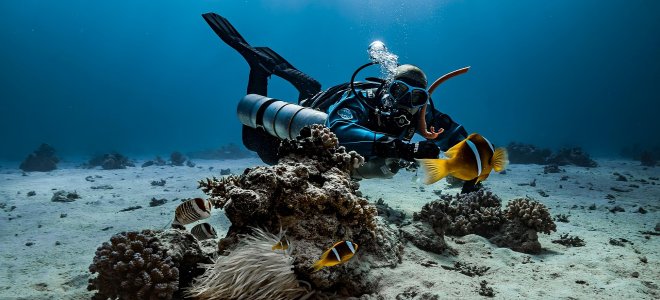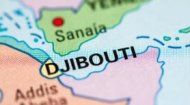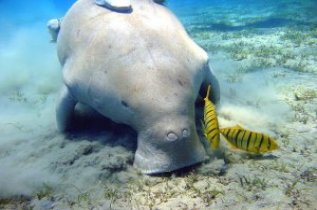|
Djibouti Sea Life |
Djibouti Sea Life |
Djibouti Sea Life | Djibouti Sea Life |
Explore all about the small nation of Djibouti on the east of Africa in pictures, videos and images.
More >

|
Among the truly fascinating inhabitants of these waters are the enigmatic dugongs, often referred to as 'sea cows'. These shy, herbivorous mammals are critically endangered globally, making their consistent presence in Djibouti’s coastal seagrass beds a significant point of interest and a testament to the health of these vital ecosystems. While challenging to spot due to their elusive nature, encounters with dugongs are cherished by divers and conservationists alike. Dolphins, including spinner and bottlenose varieties, frequently entertain boaters with their acrobatic displays, while several species of sea turtles, such as the green and hawksbill turtles, traverse these waters, some even returning to Djibouti’s beaches to nest, continuing ancient cycles of life. The interplay of strong currents and nutrient upwellings also supports a phenomenal diversity of invertebrates, from colourful nudibranchs to giant clams, adding to the visual richness of the underwater landscape. These incredible marine spectacles form the bedrock of Djibouti's burgeoning tourist attractions, with diving and snorkelling being the primary draw for international visitors. The crystal-clear waters offer exceptional visibility, often exceeding 30 meters, allowing for breathtaking views of the vibrant coral gardens and their bustling inhabitants. The Gulf of Tadjoura, especially around the volcanic landscapes of the Seven Brothers Islands, known locally as Sawabi, is a prime destination for divers seeking pristine reefs, dramatic drop-offs, and encounters with large pelagic species. Whale shark season, typically from October to February, transforms Djibouti into a global hotspot for ethical interactions with these magnificent creatures, where strict guidelines are observed to ensure minimal disturbance and maximum appreciation for the animals in their natural habitat. Beyond diving, boat trips offer opportunities for dolphin watching, exploring remote islands, and simply soaking in the serene beauty of the coast from above the surface. Recognising the immense value of this natural heritage, conservation efforts are increasingly taking centre stage in Djibouti. The challenges are numerous, ranging from the impacts of climate change causing coral bleaching and ocean acidification, to the threat of plastic pollution, and the pressures of sustainable fishing practices. In response, local authorities, often in partnership with international organisations, have designated Marine Protected Areas (MPAs), with the Seven Brothers Islands being a prominent example, serving as vital sanctuaries where marine life can thrive undisturbed. These initiatives focus on regulating tourism activities, particularly whale shark interactions, promoting responsible waste management, and educating local communities about the importance of protecting their marine environment. The development of sustainable tourism practices, which aim to minimise environmental impact while maximising economic benefits for local communities, is also a key component of these conservation strategies. Fishing has always been an integral part of Djibouti's coastal communities, providing both sustenance and livelihoods for generations. Traditional fishing methods, often carried out by small-scale artisanal fishermen, target a variety of reef fish and pelagic species, contributing to local food security and cultural heritage. However, the increasing demand for seafood and the presence of larger commercial fishing operations, both domestic and international, pose significant challenges to the long-term sustainability of fish stocks. Efforts are underway to implement more effective fisheries management plans, including regulating catch sizes, establishing fishing seasons, and promoting selective fishing gear to reduce bycatch. Balancing the economic needs of fishing communities with the imperative to protect marine ecosystems is a delicate act, requiring continuous monitoring and adaptive strategies to ensure the health of the ocean for future generations. The impact of marine life on Djibouti's economy is multifaceted and increasingly significant. Tourism, driven largely by the allure of its spectacular underwater world, generates substantial revenue, supporting a network of dive centers, hotels, restaurants, and local guides, thereby creating numerous employment opportunities for Djiboutians. The unique aggregations of whale sharks, in particular, have put Djibouti on the map as a premier ecotourism destination, attracting high-value visitors who contribute directly to the local economy. Furthermore, a healthy marine environment supports the fishing industry, albeit one that requires careful management, providing food and income. Beyond direct economic contributions, the presence of such diverse marine life also attracts scientific researchers, fostering international collaboration and enhancing Djibouti's reputation as a hub for marine biology and conservation studies, indirectly contributing to educational and technological advancement. |









